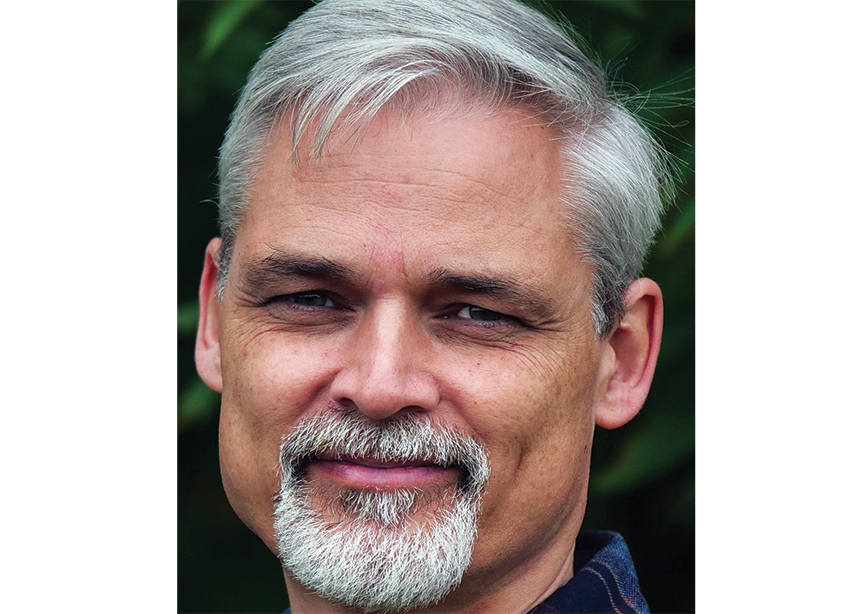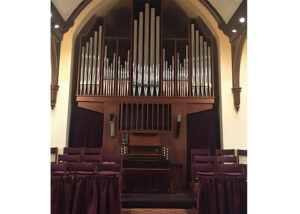Like Amos, I am neither a prophet nor the son of a prophet. Yet it is apparent to most people involved in church ministry that, to quote another non-prophet prophet, Bob Dylan: “The times, they are a-changin’.”
The COVID-19 pandemic has revealed fragility and fault lines in our ways of being and doing church. It has accelerated changes that were happening slowly before COVID-19 came along. Congregations are left trying to figure out who they are, both literally (Who is still part of us?) and philosophically (Who is God calling us to be in this time?). Many pastors are now re-assessing their calling, or at least the way they engage in ministry.
I am neither a prophet nor the son of a prophet. I am, however, a regional church executive minister who has spent 30 years in church ministry in a variety of settings. What do I see for the Mennonite church of the future?
• I see mostly smaller congregations that have grieved well the loss of their “glory days” and are committed to being the church “more with less.” I see these smaller congregations tied less to a specific building, either having sold off their large buildings or sharing their facilities with other churches, other organizations or other ministries.
• I see these congregations being more focused on their local community, more integrated into their neighbourhoods. I see them being more intercultural, more diverse, matching more closely the communities in which they gather and the neighborhoods they serve.
• I see more ecumenical engagement in our future, not just in dialogue out of a desire to increase understanding, but working together out of necessity. The future of the church will involve more partnerships across denominations, sharing our gifts with each other, being the church together.
• I see Mennonite congregations and the Mennonite church finding our sustaining unity in a renewed emphasis on learning and following the way of Jesus. I see this expressed primarily through God-centred worship and Jesus-focused discipleship, sharing everyday life together, grappling honestly with difficult questions of faith and practice, and serving our surrounding communities together in practical ways.
What might all this mean for church leadership and, in particular, pastoral leadership?
• We will see fewer professional pastors needed for our smaller congregations. We will see churches that once hired three full-time pastors now hiring two, or hiring three part- time pastors focused on specific ministry areas. We will see a single pastor serving two or more small Mennonite churches in the same area, or perhaps a team of two or three serving a cluster of churches. Some congregations will move away from professional pastors toward lay ministry models.
• We will see diverse kinds of leadership that are context-specific. An elderly congregation next to a personal- care home will want a part-time pastor focused on seniors. An inner-city congregation will want a part-time lay minister who can work with community organizations to respond to homelessness. There will always be a need for the “general practitioner” pastor in many settings, but even these could see their roles shift and re-focus as congregational and community profiles change.
All this means we will need to support leaders in diverse ministry settings, meeting context-specific needs. This means we cannot give leaders all the knowledge and skills they need up front. Rather, we need to prepare leaders—both lay people and pastors—who have the theological and practical tools to learn new skills along the way, and to adapt to new settings.
We will also need to provide greater support for non-traditional pastoral roles: Bi-vocational pastors. Second-career pastors. Interim pastors. Lay ministers.
The conventional path of a young person sensing a call to ministry from within a supportive home church, going off to university and seminary, and spending their career as a full-time pastor—that path, while still important, will be only one of many.
These are challenging times to be the church. They are challenging times to be a pastor. But in these challenges there are also opportunities for new paths of faithfulness. As we seek to follow Jesus together, may we know his promises, the promises of a true prophet: “I will build my church,” and “I am with you always.”
Michael Pahl is executive minister of Mennonite Church Manitoba. He is committed to developing meaningful and sustainable ways of being the church as Mennonites in the 21st century.
Related stories:
Five pastoral callings
Finding and calling a pastoral leader









Leave a Reply
You must be logged in to post a comment.